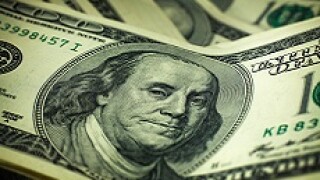Wells Fargo Securities
-
Just two benchmark issuers — Mars and Hewlett-Packard Enterprises — came to the US corporate bond market this week, as earnings season pushed corporate America into blackout. But after a short lull, bankers expect a spike in issuance as companies try to fund before the US election.
-
US corporate bond issuers got straight back to business after the July 4 weekend as 11 borrowers raised $10.8bn, though the volume of issuance is tapering off as companies head into earnings blackouts.
-
Jamie Niven has joined Wells Fargo as head of equities for Europe, the Middle East and Africa.
-
Yankee banks ensured a record-breaking first half ended on a high, as European lenders took advantage of strong demand for tier two paper.
-
Weir Group, the UK engineering company, has signed bank lines totalling $1.19bn, but amid coronavirus-related market volatility, banks required a higher margin than on the deal being refinanced.
-
DirectBooks, which plans to bring a new issuance platform for bond markets, has not ruled out the possibility of a partnership with other providers.
-
The Federal Reserve has come under fire for failing to oblige banks to stop paying dividends at a time of extreme economic uncertainty. The results of its latest stress test showed this week that a quarter of US banks could approach their minimum capital ratios if the coronavirus pandemic leads to a double-dip recession.
-
-
The Inter-American Development Bank has bumped up its 2020 funding programme by almost a quarter to fund its response to the coronavirus pandemic.
-
Bank of East Asia (BEA) sold the first Basel III compliant tier two dollar bond in Asia since the global outbreak of Covid-19. It raised $600m on the back of a book that was more than 8.5 times oversubscribed at its peak.
-
European banks are expected to hit the dollar market in force over the coming weeks as they look to take advantage of an extended rally in spreads.
-
Bank of America became the first global commercial bank to print a Covid-19 response bond this week.










